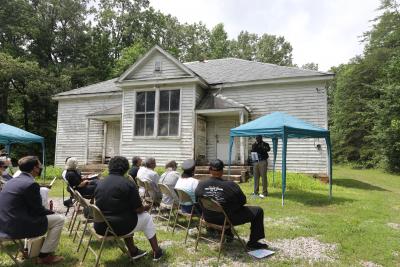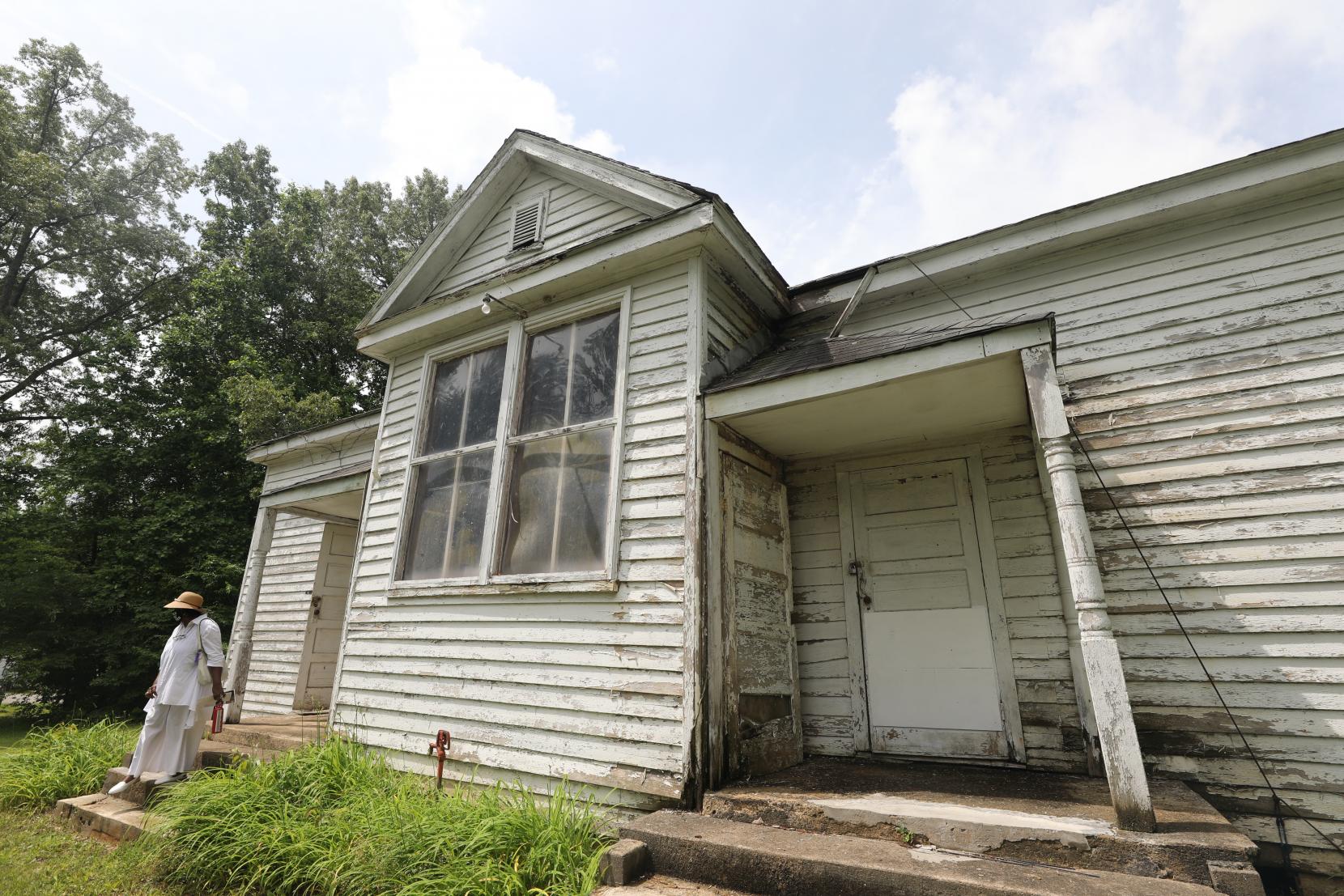Virginia’s Pine Grove School named one of ‘America’s Most Endangered Historic Places’
The National Trust for Historic Preservation has included Pine Grove School on its list of America’s 11 Most Endangered Historic Places for 2021. This honor followed Preservation Virginia’s designation of the broader Pine Grove School Community as one of the state’s most endangered historic places in 2020. Both recognitions come as the historic Black schoolhouse and surrounding community face threats from a proposed mega-landfill.
Located in Cumberland County, Virginia, the Pine Grove School is one of a dwindling number of historic Rosenwald schools still standing.
The Rosenwald School project originated in a partnership between educator Booker T. Washington and philanthropist Julius Rosenwald to help establish schools for Black children throughout the South in the Jim Crow era. Based on Washington’s designs and with seed money from the Rosenwald Fund, the Pine Grove School was built by the community in 1917 and remained in operation until 1964. It continues to serve as an important community gathering place to this day.

Community members are rejoicing over the National Trust’s recognition, which helps raise awareness and increase support for their efforts to stop the proposed Green Ridge Recycling and Disposal Facility mega-landfill from being constructed in the community.
“My first reaction was joy—just unabashed joy,” says former Pine Grove School student Muriel Branch. “And thanksgiving that a prestigious national organization would see some of what we see, the value of both the school and the community.”
Branch is the president of the AMMD Pine Grove Project, a community group that has worked to preserve and gain historic recognition for the school and surrounding community, and is fighting to protect it from the proposed landfill.
Cumberland County resident Michael Scales, who attended Pine Grove School with Branch and whose mother and grandmother also taught there, says he hopes with this new recognition, the school can be used to show the value of Rosenwald schools and the communities they served so that they may also be preserved.
“You can’t tell the story of the South without telling the story of Black people,” he says.

SELC became involved with the project after learning of the proposed landfill’s close proximity to the Pine Grove School and its potentially serious impacts on the surrounding community and destruction of nearby natural resources, including many streams and wetlands. The Green Ridge Recycling and Disposal Facility’s disposal areas would cover 238 acres and the facility would accept up to 5,000 tons of waste per day from a 500-mile radius that extends well beyond Virginia’s borders.
The U.S. Army Corps of Engineers and Virginia Department of Environmental Quality are currently reviewing applications for federal and state permits required for the project to move forward.
“We are urging the Corps to fulfill its responsibility to prepare a full Environmental Impact Statement to ensure the significant impacts of this mega-landfill on this historic school and community are adequately addressed,” says Senior Attorney Travis Pietila. “And it must include a hard look at both the need for a landfill of this scale and more suitable locations in Green Ridge’s vast service territory.”
There is value in who we are and where we live and what we built.
Muriel Branch, President of the AMMD Pine Grove Project
“The reason these toxic industries come into these communities such as Pine Grove is because they’re very economically depressed,” says Branch.
She’s a vocal advocate for equal access to protections for all, and says Black people have often been left out of the conversation “because there are not people who look like us leading these environmental groups. …So my thing is, give me the same access you have, and allow me to tell our story because nobody knows it better than we do.”
She has a piece of advice for other communities facing a similar battle.
“The way you get access is to push,” she adds. “You can’t sit back and say, ‘I wish they’d let me do that.’ No, you use your voice. You use your expertise. You write, you speak, you organize so that you can be heard.”
Branch noted that it was Scales’s father who originally spearheaded the movement to save the Pine Grove School in 1964 when schools were desegregated and it was up for auction.
“We’re standing on the shoulders of community leaders like Mr. Scales,” she says. “They saw the value, and for us to not build on what they have already contributed would have gone against everything I learned as a child and a student at Pine Grove. …There is value in who we are and where we live and what we built.”
To learn more about potential impacts of the proposed mega-landfill, click here.
